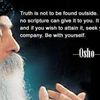30.8.2008 | 12:54
Sķšasti fyrirlesturinn sem Shunryu Suzuki-roshi hélt žann 21. įgśst 1971 - 1. hluti
Excuse me. [Laughs.] I feel rather stiff. Maybe I worked too hard.
Since we have Tassajara and the city zendō, our practice is rather concentrated on city practice or Tassajara practice. But the most important point is to know what is Zen practice, which is not only city practice, but also Tassajara practice, and city zendō practice. Wherever you are, we have Zen way of practice. No matter where you are, you must have proper understanding of our practice.
In Shōbōgenzō "Genjo-kōan," Dōgen-zenji says, referring to this point:
"When all things are Buddhism, there are birth and death—there are defilement, practice, birth and death, buddhas, and sentient beings. When all things has no self, there is no delusion, no buddha, no sentient beings, no birth, no death. Buddhism originally is beyond the all positivity or negativity, so there are birth and death, defilement and enlightenment, and sentient beings and buddha."
This is our fundamental practice. It is better now, I think, for us to follow more original way of Zen practice, which is go beyond Tassajara practice, or city zendō practice, or practice in city life. Wherever you are, this is the fundamental way of practice for us or else we will be too much involved in city practice or monastic practice and we will lose the point of practice, I am afraid.
"When all things are Buddhism—all things are Buddhism, there are defilement, practice—defilement, practice, birth and death, buddhas and sentient beings." The point is they are—they are. All things are Buddhism. Whatever you do, that is Buddhism. But there is some danger in your understanding of this kind of statement. "Whatever you do, that is Buddhism." Whatever you do in Tassajara, or in city zendō, or in city life, that is Buddhism. It looks like—it sounds like this: "Whatever we do, it doesn't matter. Anyway [laughs], that is a practice of Buddhism." If it is so, it is not necessary for you to study Buddhism, if whatever you do, that is Buddhism.
But actually, what Dōgen-zenji meant is not like that. So there is, maybe, when you understand this statement, "Whatever you do, that is Buddhism," there may be two ways of understanding it. One is, whatever you do [laughs], if you understand, you take this statement literally, from your non-Buddhist understanding. That is one.
Another is real Buddhist understanding of this statement. Like in Lotus Sūtra we say "shohō-jisso." Shohō means things we see; jisso is truth, true way it exist—way they exist—real way things exist. So everything exist in the way they exist.
So usually when we understand, "Whatever you do, that is Buddhism," means even though you do not behave [laughs], even though you do not live the way you should live, it is Buddhism. You know, there is big difference [laughs].
Shunryū Suzuki-rōshi
Saturday, August 21, 1971
San Francisco
Um bloggiš
OM - ॐ
Fęrsluflokkar
Tenglar
Hugleišslunįmskeiš į Ķslandi
- Námskeið hjá Hugleiðslu- og friðarmiðstöðinni
- Sahaja yoga-hugleiðsla
- Hugleiðslunámskeið hjá Brahma Kumaris
- Sri Chinmoy miðstöðin á Íslandi
- Andartak.is - Kundalini jóga og hugleiðsla
- Zen-hugleiðslunámskeið
- Dharma.is - Innsæishugleiðsla
- Innhverf íhugun
Frķ hugleišslunįmskeiš į Netinu
- Free Meditations
- Námskeið í búddískri hugleiðslu
- Námskeið í Kundalini yoga
- Free online meditation course
- Free Sahaja meditation course online
Hugleišsla
Hér er aš finna tengla žar sem žś getur lęrt og kynnt žér hugleišslu.
- Listin að hugleiða
- Zen á Íslandi - Zen-hugleiðsla
- Kristbjörg
- Kundalini-hugleiðsla
- Hugleiðslu- og friðarmiðstöðin
- SGI-búddismi á Íslandi
- Sri Chinmoy miðstöðin á Íslandi
- Skandinavíski yoga- og hugleiðsluskólinn
- Leiðbeiningar fyrir Zen-hugleiðslu
- Sahaja Yoga
- Brahma Kumaris - Raja Yoga hugleiðsla
- Jack Kornfield - Insight Meditation (vipassana)
- Centerpointe
- Ljósmiðlun
- Traditional Yoga and Meditation of the Himalayan Masters
- Innhverf íhugun
- Vipassana meditation course
Helg forn rit
- Veda-ritin
- Bhagavad Gita
- Bhagavad Gita
- Upanishads
- Upanishads
- Shiva sutra
- Brahma Sutra
- Yogasútrur Patanjalis
- Rig Veda
- Sama Veda
- Hatha Yoga Pradipika
- Shiva Samhita
- Gheranda Samhita
- Sacred Texts (Helg indversk rit)
- Biblían
- Dhammapada
- Kóraninn
Tķmarit um andleg mįlefni
- Tímaritið Knowledge of reality
- Bindu - Tímarit Skandinavíska yoga- og hugleiðsluskólans
- Tímaritið Gangleri
- Primary Point - Zen
- Efnisskrá Ganglera frá 1926
- The Sufism Journal online
- The Theosophist
Bękur į ķslensku um andleg mįlefni
- Starfsrækt (Karma yoga) - Swami Vivekananda
- Allar bækur Gunnars Dal
- Bækur eftir Alice Baily
- Martínus - Bækur á íslensku
- Launviska Vedabóka
Bękur um andleg mįlefni
- The Unknown Life of Jesus Christ
- Bók um Kriya Yoga
- Sjálfsævisaga Jóga
- Whispers from Eternity - Paramahansa Yogananda
- The Path - Swami Kriyananda
- God is for Everyone - Inspired by Yogananda
- My time with the master - Paramahansa Prajnanananda
- The Universe Within - Paramahansa Prajnanananda
- The art and science of Raja Yoga - Swami Kriyananda
- Complete work of Swami Vivekananda
- Gopi Krishna - Bækur, greinar og viðtöl
- Bókin Zen and the brain
- Zen Mind, Beginner´s Mind - Shunryu Suzuki-roshi
- Manual of Zen Buddhisim - D. T. Suzuki
- Stripping the Gurus
- Rödd þagnarinnar á ensku
- Eckhart Tolle - Stillness Speaks - Hljóðbók
- Bækur eftir Ramana Maharshi
- Saundarya Lahiri
- The Meditative Mind - Krishnamurti
- Krishnamurti´s Notebook
- Meditations - Krishnamurti
- The Serpent Power
- C. W. Leadbeater - Chakras: A Monograph
- Kundalini Yoga - Swami Sivananda
- Fríar bækur með Krishnamurti
- The Tibetan Book of Dead
- Karma Yoga - Swami Vivekananda
- Leiðarljós (Light on the Path) á ensku
- The Power of Now - Hljóðbók
- Hljóðbókin Breath sweeps mind eftir Jakusho Kwong-roshi
- Opening the Hand of Thought Bók eftir Kosho Uchiyama
- To shine one corner of the world : moments with Shunryu Suzuki : stories of a Zen master told by his students
- How to Cook your Life - Dogen
- The Art of Just Sitting: Essential Writings on the Zen Practice of Shikantaza
- On Zen Practice
- On Having No Head
Greinar um andleg mįlefni
- Greinasafn Lífspekifélagsins/Guðspekifélagsins
- Greinar eftir Sigvalda Hjálmarsson
- Greinar og rannskóknir tengdar kundalini
- Krishnamurti - Greinar, viðtöl og tilvitnanir
- Hugleiðingar um kenningar Sigvalda Hjálmarssonar - I. Hluti
- Hugleiðingar um kenningar Sigvalda Hjálmarssonar - II. hluti
- Greinar úr zen-tímaritinu Primary Point
- Greinar eftir dr. Erlend Haraldsson
- Greinasafn Jóns L. Arnalds
- Yður er í dag frelsari fæddur? - Njörður P. Njarðvík
- Yoga og geðrækt
- Leiðin til hugljómunar - Sigvaldi Hjálmarsson
- Geinar úr tímaritinu Quest
Żmsir tenglar andlegs ešlis - Ķslenskir
- Kærleikssetrið
- Jógakennarafélag Íslands
- Lífspekifélagið/Guðspekifélagið
- AA
- CoDa
- Viska og gleði
- Kærleikssamtökin
- Björg Einarsdóttir
- Trú.is
- LAUSNIN - Baráttusamtök gegn meðvirkni
- Dharma.is - Innsæishugleiðsla
- Dulheimar - Andleg þróunarheimspeki
- Vetrarbrautin.com
- Listi yfir skráð trú- og lífskoðunarfélög á Íslandi
Żmsir tenglar andlegs ešlis - Erlendir
- DharmaTalk með Thich Nhat Hanh
- Agni Yoga
- Meditation of the Himalayan Masters
- Vedanta Society
- Vedanta.com
- tantra-kundalini.com
- Ayurveda-próf - Hvaða líkamsgerð ertu?
- Prajnanamission
- Big Mind
- Vedanta Spiritual Library
- Great Integral Awakening
- Sounds True
- Wildmind - Buddhist Meditation
- Institute for Consciousness Research
- Biology of Kundalini
- Kundalini Research Network
- Hindu Tantrik Tradition
- Inner Self
- Spirit Voyage
- Dalai Lama kyrjar möntru úr Rig Veda
- Ýmislegt um Ramakrishna
- The Five Tibetan Rite
- Message from masters
- Bæklingur um sanskrítarframburð
- The Theosophical Society - International Headquarters
- Sri Vidya
- Vedanet
- Eastern tradition - Eastern Tradition Research Archive
- Lífspekifélög/Guðspekifélög um allan heim
Żmsir andans menn
- Sigvaldi Hjálmarsson
- J. Krishnamurti
- Ken Wilber
- Gopi Krishna
- Swami Sivananda
- Osho
- Deepak Chopra
- Swami Vivekananda
- Sri Ramakrishna
- Yogi Hari
- Eckhart Tolle
- Yogi Shanti Desai
- Yogi Amrit Desai
- Shunryu Suzuki roshi
- Ramana Maharishi
- Sri Aurobindo
- Paramahansa Yogananda
- Paramahamsa Hariharananda
- Jakusho Kwong-roshi
- Jack Kornfield
- Swami Rama
- Grétar Fells
- D. T. Suzuki
- Dalai Lama
- Thich Nhat Hanh
- Eckhart Tolle
- Helena Blavatsky
- Paramahamsa Prajnanananda
- Rupert Spira
- Bodhidharma
- Om Swami
Lķfspeki/Gušspeki
- Lífspekifélag Íslands
- Lífspekifélagið í USA
- Helena Blavatzky
- Facebook-síða Lífspekifélags Íslands
- Aðalstöðvar Lífspekifélagsins á Indlandi
Kriya Yoga
Hér er aš finna tengla tengda Kriya Yoga
- Kriya Yoga Institute
- Paramahansa Hariharananda
- Paramahamsa Prajnanananda
- Bækur um Kriya Yoga eftir Hariharananda og Prajnananda
- Self-Realization Fellowship
- Ananda: The Teaching of Paramahansa Yogananda
- Cyberspace Ashram for Kriya Yoga
- Bókin Sjálfsævisaga jóga (Autobiography of a Yogi)
- Kriya Yoga - Swami Shankarananda Giri
- Kriya Yoga - Yogi Dhirananda
- Bók um Kriya Yoga á Netinu
- Kriya Yoga in the Lahiri Mahasaya family tradition
- Babaji´s Kriya Yoga
- Myndbönd um kriya yoga
- Prajnanamission
- Babaji Kriya Hatha Yoga - 18 Kriya Postures
- Umsókn - Kennslustundir hjá SRF
Hatha Yoga (Lķkamsstöšur - Teygjur)
- Yogavin
- Jóga hjá Kristbjörgu
- Jóga Stúdíó
- Jógakennarafélag Íslands
- Jóga Jörð
- Jen Reviews
- Sólir
- Yogashala
- Jógakennarar og jógastöðvar á Íslandi
Zen
- Zen á Íslandi
- Sonoma Mountain Zen Center
- Bókin Zen Mind, Beginners Mind eftir Shunryu Suzuki-roshi
- Bókin No Beginning. No End eftir Jakusho Kwong-roshi kennara Zen á Íslandi
- Hljóðbókin Breath Sweeps Mind eftir Jakusho Kwong-roshi
- The Teaching of Shunryu Suzuki-roshi
- San Francisco Zen Center
- Myndbönd með Suzuki-roshi
- Plum Village - Thich Nhat Hanh
- Zen of Recovery - Mel Ash
- Zen Road
- Zen sútrur
- Kwan Um School of Zen
- Daily Zen
- Big Mind
- Zen Peacemakers
- Suzuki-roshi 50
- Hljóðbókin Zen mind, beginner´s mind
- The Suzuki Roshi Audio Archive
- Opening the Hand of Thought Bók eftir Kosho Uchiyama
- To shine one corner of the world : moments with Shunryu Suzuki : stories of a Zen master told by his students
- How to Cook your Life - Dogen
- The Art of Just Sitting: Essential Writings on the Zen Practice of Shikantaza
- On Zen Practice
Bloggvinir
-
 thesecret
thesecret
-
 gudjonbergmann
gudjonbergmann
-
 gyda
gyda
-
 heringi
heringi
-
 gudmundurhelgi
gudmundurhelgi
-
 braxi
braxi
-
 fruheimsmeistari
fruheimsmeistari
-
 vilborg-e
vilborg-e
-
 steina
steina
-
 ludvik
ludvik
-
 maggadora
maggadora
-
 baenamaer
baenamaer
-
 perlaheim
perlaheim
-
 vestfirdir
vestfirdir
-
 vglilja
vglilja
-
 palmig
palmig
-
 einherji
einherji
-
 andreaolafs
andreaolafs
-
 flinston
flinston
-
 birnarebekka
birnarebekka
-
 tilfinningar
tilfinningar
-
 dizadj
dizadj
-
 gylforce
gylforce
-
 esa-emorea777
esa-emorea777
-
 estersv
estersv
-
 eydis
eydis
-
 gudjonelias
gudjonelias
-
 heildraent-joga
heildraent-joga
-
 heildraent-lif
heildraent-lif
-
 guru
guru
-
 tru
tru
-
 fun
fun
-
 jensgud
jensgud
-
 josira
josira
-
 katrinsnaeholm
katrinsnaeholm
-
 kari-hardarson
kari-hardarson
-
 kiza
kiza
-
 kjarvald
kjarvald
-
 kristinnhalldor
kristinnhalldor
-
 kiddirokk
kiddirokk
-
 krilli
krilli
-
 laufherm
laufherm
-
 mariaannakristjansdottir
mariaannakristjansdottir
-
 manisvans
manisvans
-
 nanna
nanna
-
 aronsky
aronsky
-
 huldumenn
huldumenn
-
 ragjo
ragjo
-
 rose
rose
-
 straitjacket
straitjacket
-
 vinur
vinur
-
 nimbus
nimbus
-
 slembra
slembra
-
 svanurg
svanurg
-
 toshiki
toshiki
-
 hanoi
hanoi
-
 thorhallurheimisson
thorhallurheimisson
Heimsóknir
Flettingar
- Ķ dag (15.9.): 5
- Sl. sólarhring: 5
- Sl. viku: 44
- Frį upphafi: 96758
Annaš
- Innlit ķ dag: 5
- Innlit sl. viku: 40
- Gestir ķ dag: 5
- IP-tölur ķ dag: 4
Uppfęrt į 3 mķn. fresti.
Skżringar






Bęta viš athugasemd [Innskrįning]
Ekki er lengur hęgt aš skrifa athugasemdir viš fęrsluna, žar sem tķmamörk į athugasemdir eru lišin.